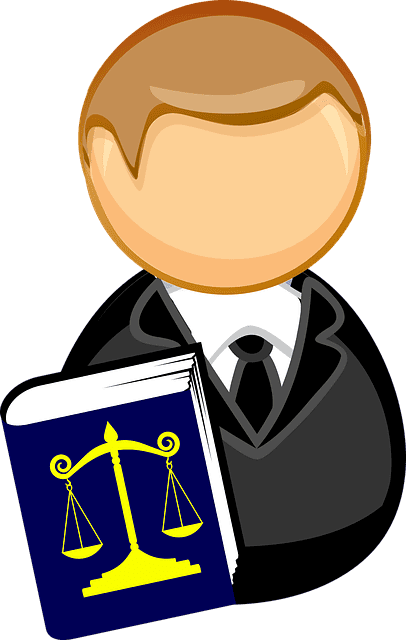As a medical professional, one of your top priorities is safeguarding your license, which allows you to practice your profession and serve your patients. But have you considered the grave consequences of drug diversion on your license and the potential impact on your career? In this blog post, we delve into the world of drug diversion and how it can jeopardize your license, the significance of medical licenses, and the crucial role of a license defense attorney in protecting your livelihood.
We will guide you through the complexities of drug diversion, its impact on your pharmacist license, the importance of maintaining your license, and the potential consequences of losing your license. We will also explore the role of a pharmacist license defense attorney and how they can assist you in navigating state board regulations, defending against complaints, and negotiating with licensing boards. Let’s begin by understanding drug diversion and its implications on your license.
Short Summary
- Drug diversion can have serious consequences on a professional license, including suspension or revocation.
- Professional licenses ensure professional standards and regulatory compliance to protect the public’s trust in healthcare systems.
- A professional license defense attorney is essential for pharmacists facing disciplinary action, providing representation and guidance to defend against complaints.
What is Drug Diversion?

Drug diversion refers to the illegal acquisition or use of prescription medications, putting both patients and healthcare providers at risk. This misconduct can occur when healthcare providers steal prescription medicines or when medications are acquired under false pretenses for the purpose of reselling them. Substance abuse and drug diversion not only harm individuals, but also have severe consequences for medical professionals, including the potential revocation of their professional license.
The threat of drug diversion is an ongoing concern for medical professional, as it undermines public trust and jeopardizes their license to practice. Therefore, it is essential for pharmacists to be vigilant and proactive in preventing drug diversion, and to understand the consequences of this misconduct on their license.
How can Drug Diversion Impact Your Pharmacist License
The impact of drug diversion on a pharmacist’s license can be severe, including having their license suspended, revocation, and potential criminal charges. The state board of pharmacy is responsible for regulating and enforcing pharmacy laws and regulations, and they take drug diversion matters very seriously.
An experienced attorney specializing in pharmacy license defense can assist in understanding Arkansas state board regulations, responding to complaints, and engaging with licensing boards. When facing disciplinary actions related to drug diversion, it is crucial to have a knowledgeable and experienced advocate on your side to protect your license and your career.
How can Drug Diversion Impact Your Medical License
The impact of drug diversion on a medical license can be severe, including having their license suspended, revocation, and potential criminal charges. The state board of medicine is responsible for regulating and enforcing laws and regulations, and they take drug diversion matters very seriously.
An experienced attorney specializing in medical license defense can assist in understanding Arkansas state board regulations, responding to complaints, and engaging with licensing boards. When facing disciplinary actions related to drug diversion, it is crucial to have a knowledgeable and experienced advocate on your side to protect your license and your career.
How can Drug Diversion Impact Your Nursing License
The impact of drug diversion on a nursing license can be severe, including having their license suspended, revocation, and potential criminal charges. The state board of nursing is responsible for regulating and enforcing nursing laws and regulations, and they take drug diversion matters very seriously.
An experienced attorney specializing in nursing license defense can assist in understanding Arkansas state board regulations, responding to complaints, and engaging with licensing boards. When facing disciplinary actions related to drug diversion, it is crucial to have a knowledgeable and experienced advocate on your side to protect your license and your career.
The Importance of Professional Licenses

Professional licenses are essential for preserving consumer trust, upholding professional standards, and guaranteeing regulatory compliance within the industry for licensed professionals. A professional license is critical in ensuring that medical professional are adequately trained, qualified, and held accountable for providing secure and efficient medication therapy to patients. It safeguards the public, bolsters confidence in the healthcare system, and upholds the profession’s integrity.
Moreover, sustaining an up-to-date license is essential for adhering to state regulations and practicing legally, which includes compliance with administrative law. Failure to maintain your pharmacy license can lead to severe consequences, as we will discuss in the following subsections.
Consumer Trust
A valid license indicates to consumers and government agencies that the professional is reliable and knowledgeable in their profession. This trust is essential, as patients rely on pharmacists to provide them with accurate information and safe medication management. Without a valid license, this trust can be easily shattered, leaving patients uncertain about the quality of care they are receiving.
Law offices specializing in license defense can help people protect their licenses and maintain consumer trust. When medical professionals face disciplinary action or license revocation, engaging a professional license defense attorney can be crucial in preserving their ability to practice and serve their patients.
Professional Standards
Professional standards are maintained through licensure, ensuring that pharmacists adhere to best practices and ethical guidelines. The regulations established by the licensing board differ by state, but typically encompass requirements for continuing education, record keeping, and reporting of any suspected drug diversion or substance abuse.
Regulatory Compliance
Regulatory compliance is critical in order to ensure pharmacists abide by state and federal laws which govern their profession. This is essential to safeguard the public from potential risks and uphold the integrity of the profession. Failure to comply with regulations can lead to allegations of professional misconduct.
The ramifications of not adhering to regulatory compliance can be severe. Healthcare professionals, can incur fines, suspension or revocation of their license, and even criminal charges. Understanding and abiding by these regulations is crucial in maintaining a license and professional standing.
Consequences of Losing a Professional License
Forfeiting a pharmacist, nursing, or medical license can lead to substantial financial loss, customer attrition, and detriment to one’s professional standing. Loss of a pharmacist, nursing, or medical license could have a considerable effect on income and job prospects, leading to the termination of current employment and the inability to secure future employment in the field.
As we delve deeper into the consequences of losing a pharmacist, nursing, or medical license, we will discuss the financial impact, client loss, and reputation damage that can result from this unfortunate situation.
Financial Impact
The financial repercussions of losing a pharmacist, nursing, or medical license can be significant, involving a loss of income and potential career opportunities, as well as legal fees and fines associated with the license revocation process. The exact amount of legal fees and fines may vary depending on the state and the circumstances of the case, but generally, the fines may range from a few hundred dollars to thousands of dollars.
The financial repercussions of forfeiting a pharmacist, nursing, or medical license may include diminished revenue, substantial fines, and possible restitution payments. These financial burdens can have long-lasting effects on a pharmacist’s livelihood and career trajectory.
Client Loss
Forfeiting a pharmacist, nursing, or medical license can have various consequences on clients, including fraud, potential risk to public health, and the potential loss of other professional licenses. The lack of a valid license may lead to a decrease in trust from clients, as well as the potential for fraud, a risk to public health, and the loss of other professional licenses.
The potential for a decline in business may be attributed to a lack of trust from clients, as well as the possibility of other professional licenses being revoked. Client loss can have a significant impact on livelihood, making it crucial to safeguard their license and maintain the trust of their patients.
Reputation Damage
The possible reputational damage resulting from forfeiting a pharmacist, nursing, or medical license may have long-term implications and could impede future career prospects for pharmacists. Reputation damage may result in a lack of trust from colleagues, employers, and clients, as well as diminished professional opportunities.
Reputation damage may result in a lack of job offers, difficulty in achieving promotions, and a decrease in professional esteem. The long-lasting impact of reputation damage highlights the importance of maintaining a valid pharmacy license and adhering to the regulations governing the profession.
Role of a Professional License Defense Attorney

A pharmacist, nursing, or medical license defense attorney plays a crucial role in navigating state board regulations, defending against complaints, and negotiating with licensing boards on behalf of pharmacists, nurses, or medical doctors facing disciplinary action. Engaging a pharmacist, nursing, or medical license defense attorney is of great importance, as they can provide pharmacists facing disciplinary action with representation, guidance on state board regulations, defense against complaints, and negotiation with licensing boards.
In the following subsections, we will explore the specific roles and responsibilities of a pharmacist, nursing, or medical license defense attorney in helping pharmacists protect their licenses and maintain their professional standing.
Navigating State Board Regulations
An experienced attorney can help pharmacists, as medical professionals, understand and navigate the complex regulations governing their profession. The regulations established by the licensing board differ by state, but typically encompass requirements for continuing education, record keeping, and reporting of any suspected drug diversion or substance abuse.
A pharmacist, nursing, or medical license defense attorney can assist in understanding and adhering to the intricate regulations governing their profession. Furthermore, they can assist in defending against complaints and negotiating with licensing boards, potentially preventing the loss of a pharmacy license.
Defending Against Complaints
Defense attorneys can provide expert counsel in defending against complaints and allegations of misconduct, potentially preventing the loss of a pharmacy license. They assist in navigating the complaint process, collecting evidence, and constructing a robust defense plan. The attorney will advocate for the pharmacist’s rights and strive to safeguard their license and professional standing.
The collection of evidence is paramount in defending against complaints as it can assist in disproving the claims and showing that the pharmacist acted in line with professional standards. Evidence can comprise of patient records, witness statements, and other documents that support the pharmacist’s defense.
Negotiating with Licensing Boards
Skilled negotiation with licensing boards can result in more favorable outcomes for pharmacists facing disciplinary action, such as reduced penalties or reinstatement of their license. The attorney’s objective is to negotiate a desirable outcome, such as a reduced penalty or dismissal of the allegations, to protect the pharmacist’s, nurse’s, or medical doctor’s license and professional discipline.
Summary
In conclusion, drug diversion is a significant concern for pharmacists, nurses, or medical doctors, as it can lead to severe consequences for their professional license, career, and financial stability. Maintaining a valid pharmacist, nursing, or medical license is crucial for upholding consumer trust, professional standards, and regulatory compliance within the industry.
It is essential to be proactive in preventing drug diversion and to be aware of the potential consequences of losing their license. Engaging a pharmacy license defense attorney can provide valuable guidance, representation, and negotiation in navigating the complex world of state board regulations, defending against complaints, and protecting your license.






